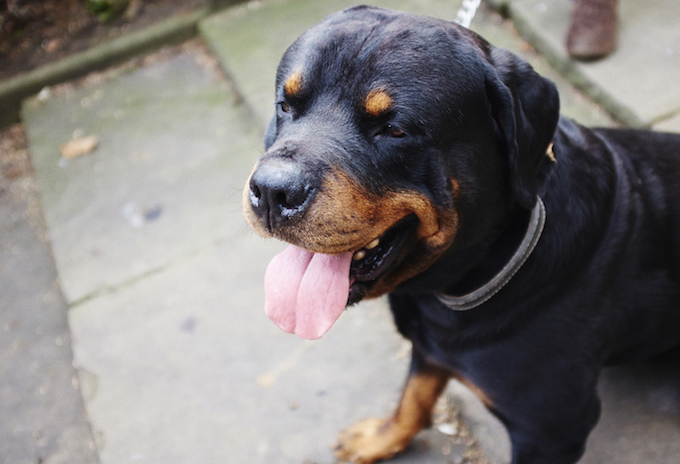Muscular dystrophy in dogs is an inherited condition. The condition is caused by a lack of a muscle-membrane protein called dystrophyin.
Generally, male dogs suffer from the condition more than female dogs. Additionally, specific breeds are more likely to develop the condition. For example, those breeds include Labrador Retrievers, Samoyeds, and Rottweilers.
If you see the signs of muscular dystrophy in your dog, then get to a veterinarian for a proper diagnosis and treatment.
Here’s what you should know about the symptoms, causes, and treatments for the condition.
Symptoms of Muscular Dystrophy in Dogs
The condition produces a range of symptoms. For instance, some of the most common symptoms include:
- Muscles weakening
- Hunched back
- Shying away from exercise
- Heart failure
- Tremors
- Problems swallowing properly
- Enlarged muscles (including the tongue)
- Vomiting
- Drooling
Causes of Muscular Dystrophy in Dogs

The cause of the condition is genetic. Specifically, dogs born with the condition have a defect of a gene on the X chromosome. Basically, this is why male dogs experience the condition more than female dogs.
Additionally, the following breeds are most at risk of the condition:
- Rottweilers
- Labrador Retrievers
- Belgian Shepherds
- Samoyeds
- Irish Terriers
- Miniature Schnauzers
- Brittany Spaniels
Treatments for Muscular Dystrophy in Dogs
Firstly, your vet will ask about your dog’s symptoms. Secondly, your vet will ask about your dog’s full medical history. Specifically, this will include any problems related to the breed.
Thirdly, a full physical examination will be carried out. Additionally, blood and urine tests will also be taken.
Ultimately, a muscle biopsy can confirm the condition.
Unfortunately, treatment is not currently seen as being very effective. Sometimes, medicines known as glucocorticosteriods can be prescribed — but there can be negative side effects.
Generally, dogs suffering from this condition will need to keep up regular vet visits. This is to closely monitor their health.
Have you ever cared for a dog who suffered from this condition? How did your vet help your dog recover? Let us know in the comments section below.









